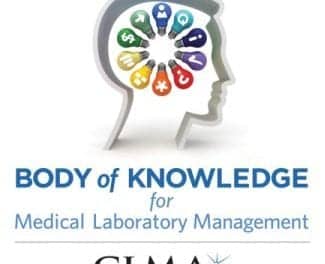Insight Genetics has been awarded a $200,000 Phase I Small Business Innovation Research (SBIR) contract from the National Cancer Institute (NCI) to develop a new test for lung cancer patients. The contract was awarded as part of a solicitation titled, "Companion Diagnostics: Predictive and Prognostic Tests Enabling Personalized Medicine in Cancer Therapy." Insight Genetics was one of four companies in the nation to be selected to receive funding.
"Personalized medicine is the future of cancer care," said Eric Dahlhauser, chairman and CEO of Insight Genetics. "Companion diagnostics help physicians identify which patients are likely to benefit from certain cancer treatments and also can be useful tools in monitoring if a cancer therapy is effective or not. Insight Genetics is excited to be developing diagnostic assays to improve the care available to cancer patients."
The goal of the NCI’s solicitation was to stimulate research, development, and commercialization of innovative tests and technology platforms in companion diagnostics, a field that holds the promise of safer, more effective patient care and reduced health care costs. Companion diagnostic tests screen a patient for a particular biomarker, such as a genetic mutation or gene expression marker, which can indicate if a medication is likely to work for the patient or what dose will be most effective. They can prevent the administration of ineffective therapies or medications that might cause an adverse reaction in a certain patient. Such tests also can gauge the ongoing effectiveness of some medications and help physicians determine when a new treatment might be necessary.
Companion diagnostics have particular importance in the cancer arena because most forms of cancer can be subdivided into several different subtypes, each of which is caused by different genetic mutations and is susceptible to different treatments. In addition, many cancer patients develop unpredicted resistance to their treatments, which makes the cancer therapies no longer effective. Companion diagnostic tests can help identify such resistance and guide the prescription of alternate treatments.
Insight Genetics was chosen by NCI for its Insight ALK Screen™ (patent pending), a real-time PCR-based test that detects cancer-causing fusions and mutations of anaplastic lymphoma kinase (ALK). ALK fusions and mutations have been shown to have a pathogenic role in many types of cancer, including non-small cell lung cancer (NSCLC), diffuse large B-cell lymphoma (DLBCL), anaplastic large cell lymphoma (ALCL), neuroblastoma (NBL), and inflammatory myofibroblastic tumors (IMT). As a consequence of the widespread involvement of ALK fusions and mutations in human cancers, several pharmaceutical companies are developing ALK-inhibitor therapies.
As part of its NCI contract, Insight Genetics will further validate Insight ALK Screen using specimens from patients with lung cancer. About 5%–10% of lung cancers are caused by ALK mutations. The company will determine the reproducibility and accuracy of the test and demonstrate its ability to be used in clinical settings and in concert with ALK-inhibitor medications.
"I am quite excited about the Insight ALK Screen assay because it appears to be significantly more sensitive than ALK antibody immunostaining and fluorescence in situ hybridization (FISH), the other ALK detection methods currently available. As such, this test will avoid false-negative calls of ALK involvement in tumors that would result in patients missing out on the often marked anti-tumor benefits seen with ALK-inhibitor therapy," said Dr. Stephan W. Morris of St. Jude Children’s Research Hospital. "In addition, the test is much easier and more rapid to perform than FISH, which is important when considering the best diagnostic approach to detect a genetic abnormality that occurs in only a small percentage of cases of a specific cancer type, as is often the situation with cancer-causing ALK fusions and mutations."
Once Insight Genetics completes the Phase I contract, it can then apply for a Phase II SBIR contract award of $1,500,000 to complete the commercialization of the assay.
Source: Insight Genetics



